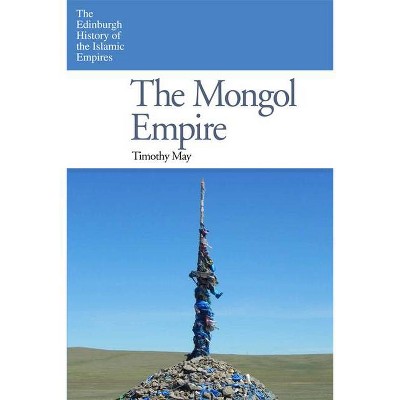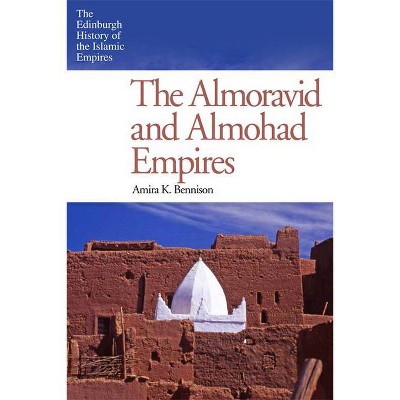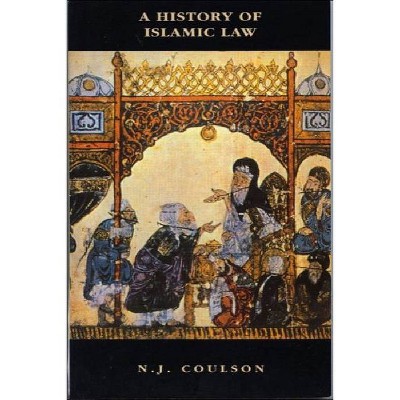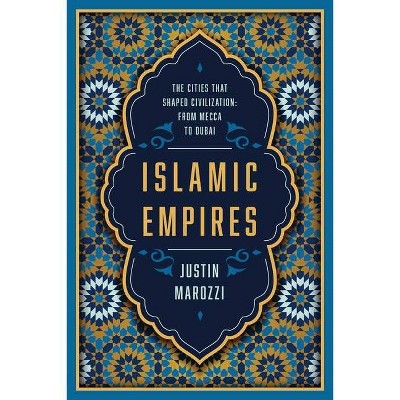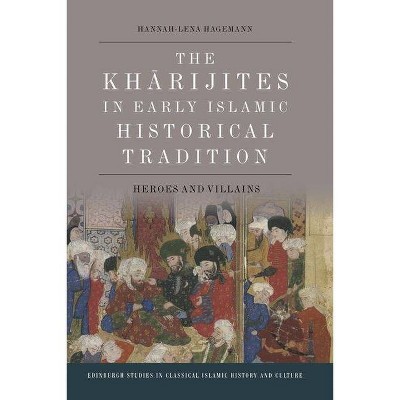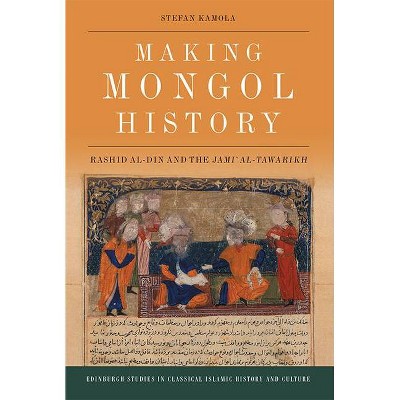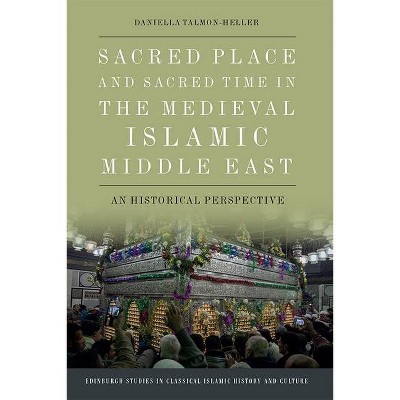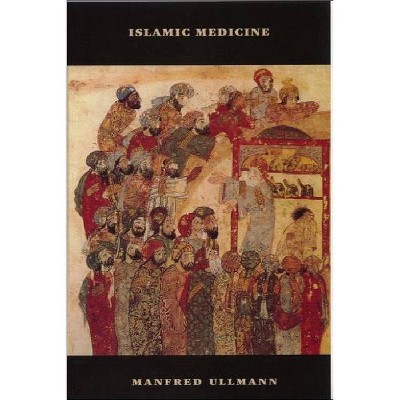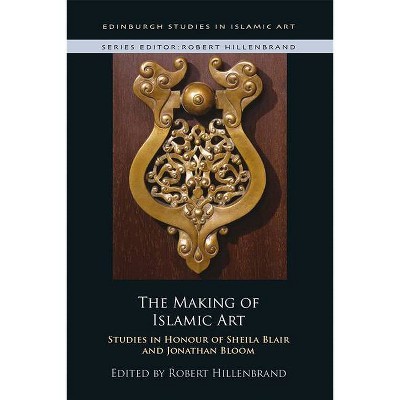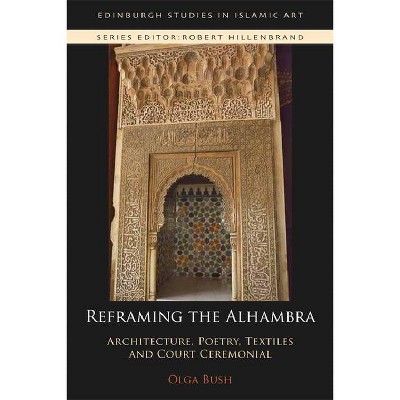The Great Seljuk Empire - (Edinburgh History of the Islamic Empires) by A C S Peacock (Paperback)
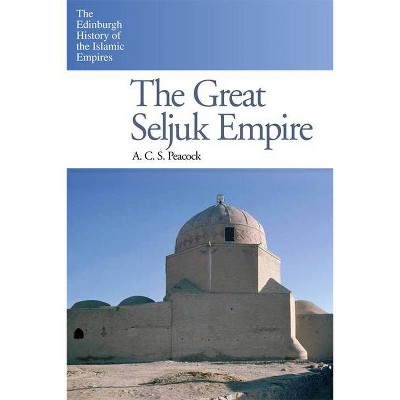
Similar Products
Products of same category from the store
AllProduct info
<p/><br></br><p><b> About the Book </b></p></br></br>The first English language general history of the Great Seljuk Empire outlines its chronological history and will explores its religious and institutional history.<p/><br></br><p><b> Book Synopsis </b></p></br></br>The Seljuks, nomadic tribesman in origin, invaded the Middle East in the 11th century and established themselves as sultans in the Islamic tradition. The Great Seljuk Empire became one of the major empires of Middle Eastern history and dominated Central Asia, Iran, Iraq and Syria in the 11th and 12th centuries.The proposed book will provide the first English language general history of this empire. It will outline the chronological history of the empire and will then explore the religious and institutional history, based on the following themes: * The relationship between tribes and the state* The development of administrative and religious institutions* The nature and impact of Turkish settlement in the Middle East and its consequences* The long-term significance of the religious history of the period* The struggle for legitimacy and authority between sultans, caliphs, religious scholars and amirs* The political role of women in the Seljuk court* The Seljuks and the non-Muslim world<p/><br></br><p><b> From the Back Cover </b></p></br></br>The Edinburgh History of the Islamic Empires Series Editor: Ian Richard Netton This major series covers the history of the Islamic world, from its origins in the 7th century to the fall of the last of the great Islamic empires, the Ottoman Empire, in the early 20th century. Combining scholarship, reliability and readability, books in the series reflect the fluctuating dynamics of change and present an overall unity to the history of the Empires. 'An elegantly and entertainingly written, painstakingly researched work that fills a glaring lacuna in the scholarly literature. Peacock's book is, quite simply, the first ever to cover the entire Seljuq period, and the only available comprehensive overview of this critical era. It will no doubt become a standard work in the field.' Professor Deborah G. Tor, University of Notre Dame The Great Seljuk Empire was the Turkish state which dominated the Middle East and Central Asia in the eleventh and twelfth centuries. This book surveys that period, which was one of exceptional importance, witnessing profound demographic, religious, political and social changes in the Islamic Middle East. The Turkish invasions played a role in provoking the Crusades, led to the collapse of Byzantine power in Anatolia and brought about the beginnings of Turkish settlement in what is now Turkey and Iran, permanently altering their ethnic and linguistic composition. Key Features The first book in a western language to offer an overview of this major Islamic empire Provides a narrative history and a thematic analysis of the empire's institutions and aspects of life in the Seljuk world Examines the political, administrative, military, religious, economic and social organization of the Great Seljuk Empire using a wide variety of historical and literary sources Draws on the evidence of archaeology and material culture Illustrated with images, maps, charts, family trees Text boxes introduce key themes and institutions A.C.S.Peacock is Lecturer in Middle Eastern History at St Andrews University. Previous publications include Early Seljūq History: a new interpretation (London, 2010) and as co-editor (with Sara Nur Yıldız) The Seljuks of Anatolia: Court and Society in the Medieval Middle East (London, 2013).<p/><br></br><p><b> Review Quotes </b></p></br></br><br><p>'<em>The Great Seljuk Empire </em>is a truly impressive piece of scholarship that provides arguably the first full-length overview of Seljuk history in English and demonstrates Peacock's considerable experience in this area. It will also appeal to a broad audience. I am sure that students and non-specialists will find Peacock's engaging manner accessible, whilst appreciating the trouble he takes explaining key terms and concepts. For specialists, interested in the key thematic debates on this subject, this work provides new insights, but it also acts as a much-needed benchmark, drawing together the various studies produced thus far and reflecting upon their implications when considered as a corpus. In general, I am fully in agreement with Deborah Tor that this will rapidly become "a standard work in the field".'</p>--Nicholas Morton, Nottingham Trent University "Al-Masāq, Journal of the Medieval Mediterranean "<br><br><p>'Andrew Peacock is to be commended on the challenge undertaken. He has produced 'the first serious overall study of the Great Seljuk Empire which has ever existed'. Our reviewer was impressed by the fact that the book is 'very well and clearly organised' and written in a 'pleasing style which renders it remarkably accessible to the reader'. The book 'places strong emphasis on the nomadic background of the Seljuks, and on the continued importance of their relations with the nomadic Turks who they led as well as were often in conflict with. This is something which the sources, the majority of which were written by bureaucrats or clerics - and certainly not by the Seljuks themselves or other Turks - has tended to obscure'. In short, Andrew Peacock has produced 'a most remarkable book'.'</p>--British-Kuwait Friendship Society Book Prize<br><br>'This book is well written and the author provides an excellent overview of how the Seljuk empire probably looked and functioned.'--Willem Floor "Der Islam "<br><p/><br></br><p><b> About the Author </b></p></br></br><p>A.C.S. Peacock is Professor of Middle Eastern and Islamic History at the University of St Andrews, and holds a PhD from the University of Cambridge. His previous publications include The Great Seljuk Empire (2015) and Early Seljuq History (2010).<p>
Price History
Price Archive shows prices from various stores, lets you see history and find the cheapest. There is no actual sale on the website. For all support, inquiry and suggestion messagescommunication@pricearchive.us
